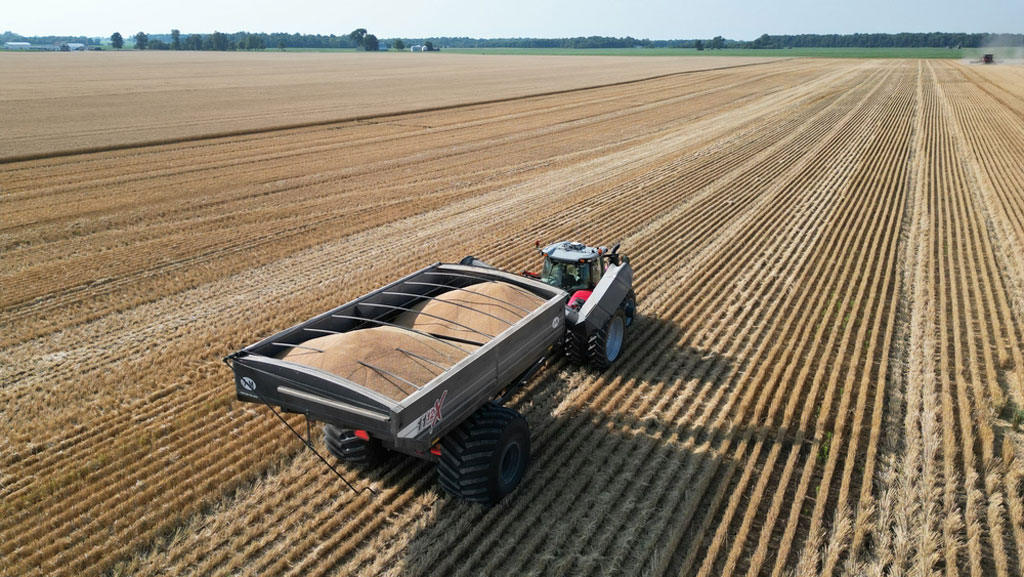Modernization and Automation of the U.S. Agricultural and Food Processing Industries

The U.S. Food and Agriculture sector has long been the nation’s backbone, creating millions of jobs and significantly contributing to the American economy. Yet, as the 21st century progresses, the sector’s agricultural and food-processing industries face a growing number of challenges, including labor shortages, rising input costs, and intensifying global competition. These issues have profound and far-reaching implications for both national and global food security, the economic development of rural communities, and overall environmental sustainability. As such, there is a clear and urgent need for an effective solution that addresses these challenges and boosts sector efficiency and productivity.
Fortunately, a promising trend is emerging. Other U.S. industries have turned to automation, seeking to overcome similar challenges. Data from the Association for Advancing Automation illustrates this shift: in 2022, North American companies ordered over 44,100 robots, an 11% year-over-year increase. This surge in automation adoption demonstrates its potential to enhance efficiency, reduce costs, introduce sustainable production methods, and improve infrastructure, including in the U.S. Food and Ag sector.
With that said, implementing advanced automation systems goes beyond investing in new equipment. The real challenge lies in effective implementation and ongoing management, requiring highly specialized experts with in-depth knowledge in industrial engineering, robotics, software integration, and process optimization. This brings us to another significant issue.
Talent Shortage Slows Progress
While automation is expected to replace 1.5 million jobs over the next decade (primarily in traditional manufacturing and agriculture, according to Oxford Economics), it will also generate a significant need for skilled professionals to design, implement, and maintain these systems. The United States, however, faces a growing skills gap, with industries struggling to find qualified workers. According to McKinsey & Company, this talent shortage can lead to rising labor costs, project delays, and lower returns on modernization investments. Moreover, the skilled worker shortage threatens to undermine even well-funded legislative initiatives, such as the CHIPS and Science Act, which allocates substantial funds for semiconductor production and scientific research.
Strategic Value of Skilled Experts
To better grasp the impact of the skilled labor shortage on the U.S. Food and Ag sector, let’s examine the key benefits that modernization and automation specialists can bring to businesses. These experts enable companies to:
- Optimize Processes - Skilled engineers and automation specialists optimize production and agricultural workflows, ensuring that new technologies operate to their fullest potential.
- Enhance Productivity - Automated systems minimize human error, optimize production timelines, and ensure strict quality control.
- Improve Competitiveness - With the current global adoption of automation technology, companies that leverage the expertise of specialized professionals will gain a significant competitive advantage, while those that do not risk falling behind.
- Sustain Growth - By seamlessly integrating advanced technologies into operations, food processing companies and farms can scale their production capabilities more effectively.
Government and Industry Responses
Recognizing the gravity of the issue, the government and private sector have rolled out several programs to help close the skills gap. One such effort is Manufacturing USA, a national network aimed at improving manufacturing in the United States by bringing together industry, academia, and government. By providing research funding, workforce development programs, and apprenticeships, Manufacturing USA helps address the talent shortage and prepares students and workers for the tech-driven work environment. Programs like Manufacturing USA are essential for developing the expertise needed to support automation and modernization in the agricultural and food processing industries.
However, despite these efforts, the education-industry gap remains significant. To bridge this divide more effectively, educational institutions must create specialized programs focusing on automation, robotics, and advanced manufacturing technologies. Furthermore, existing workers require enhanced professional development opportunities to contribute to modernization and automation efforts, particularly in agricultural and food processing industries.
The Path Forward
The modernization and automation of America’s agricultural and food processing industries have become imperative for survival. As these industries navigate the uncharted waters of technological innovation, investing in human capital is equally vital as investing in cutting-edge technology. However, the responsibility of preparing the workforce for this new era doesn’t rest solely on educational institutions and government initiatives; companies must also prioritize employee training and development. By collaborating across sectors, we can bridge the skills gap, fostering a U.S. workforce that’s agile, competitive, and poised to dominate the global market. This will enable agricultural and food processing companies to overcome pressing challenges, drive innovation, and secure a prosperous, technologically advanced future.
Have you read?
Safest Countries in the World.
Most Productive Countries in the World.
Most peaceful countries in the world.
Most influential financial centers in the world.
Most Powerful Currencies In The World.
Bring the best of the CEOWORLD magazine's global journalism to audiences in the United States and around the world. - Add CEOWORLD magazine to your Google News feed.
Follow CEOWORLD magazine headlines on: Google News, LinkedIn, Twitter, and Facebook.
Copyright 2025 The CEOWORLD magazine. All rights reserved. This material (and any extract from it) must not be copied, redistributed or placed on any website, without CEOWORLD magazine' prior written consent. For media queries, please contact: info@ceoworld.biz








